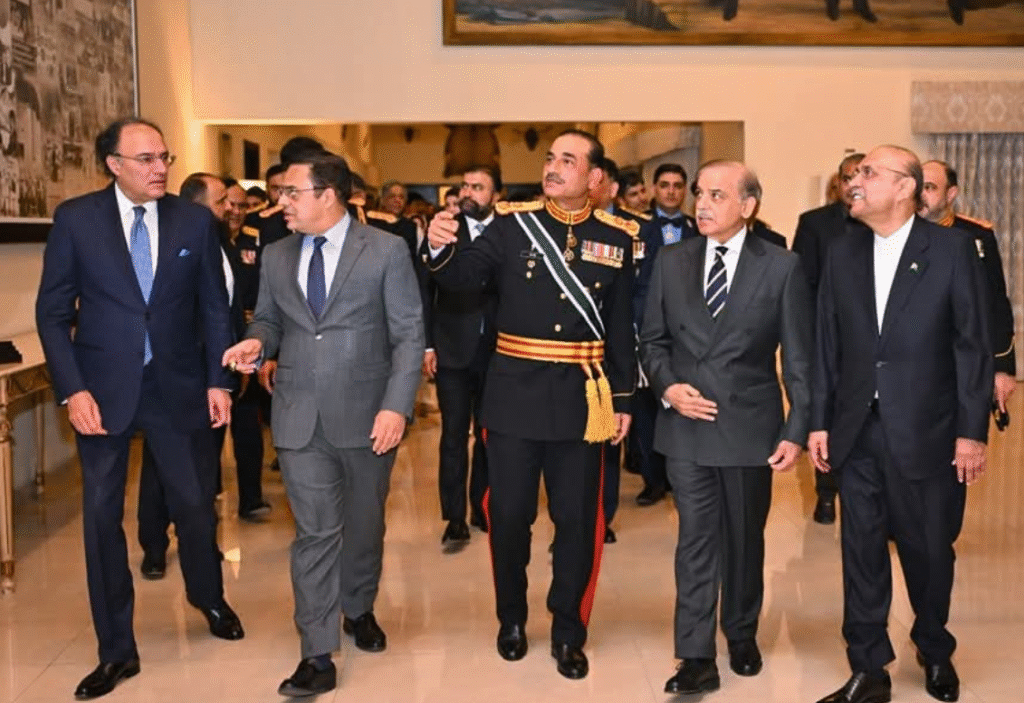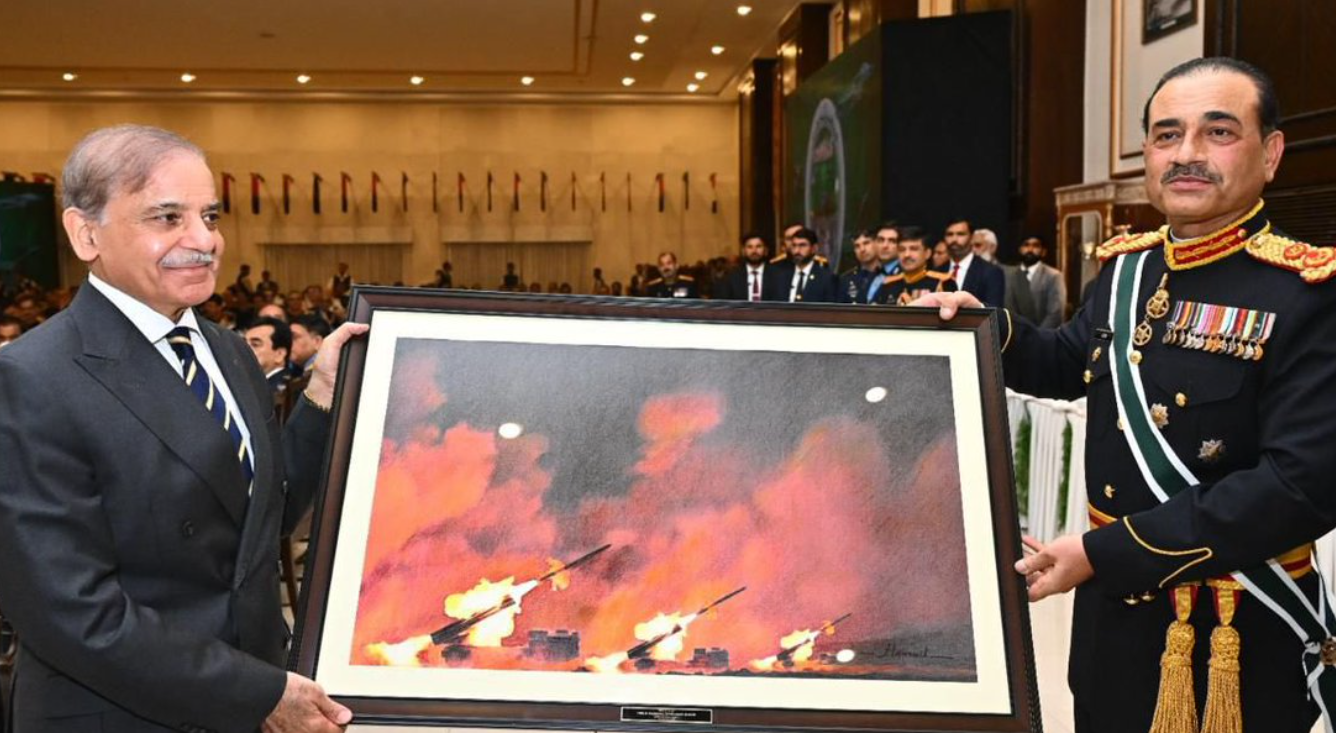Political Playbook Of Asim Munir: Days after the military conflict between India and Pakistan, a new figure has emerged as a dominant force in Pakistan’s power structure. General Asim Munir, Chief of Army Staff, has been elevated to the rank of Field Marshal in a special investiture ceremony held on May 22nd in Islamabad. The ceremony was attended by prominent political leaders, including President Asif Ali Zardari and Prime Minister Shehbaz Sharif, who jointly conferred the baton of Field Marshal upon Munir in recognition of his extraordinary services to the country during a time of great instability.
Asim Munir: Elevation to Field Marshal Amid Conflict
Days after the military conflict between India and Pakistan, a new figure has emerged as a dominant force in Pakistan’s power structure. General Asim Munir, Chief of Army Staff, has been elevated to the rank of Field Marshal in a special investiture ceremony held on May 22nd in Islamabad. The ceremony was attended by prominent political leaders, including President Asif Ali Zardari and Prime Minister Shehbaz Sharif, who jointly conferred the baton of Field Marshal upon Munir in recognition of his extraordinary services to the country during a time of great instability.
A High-Profile Dinner and Political Signals
Just two days after his elevation, Field Marshal Munir hosted a high-profile dinner to honor the nation’s political leadership and the armed forces’ role during Operation Banyan al-Marus. The event saw attendance from top political figures, including the president and prime minister. However, the absence of the hybrid Paktunkhwa chief minister and other leaders from the Pakistan Tehreek-e-Insaf (PTI) party was notable. This has further fueled speculation about the evolving power dynamics in Pakistan’s political landscape.
A dinner was hosted by Field Marshal Syed Asim Munir, NI(M), Chief of Army Staff, to honour the political leadership, steadfast commitment of the Armed Forces, and the indomitable spirit of the people of Pakistan as demonstrated during Marka-e-Haq, Operation Bunyanum Marsoos. The distinguished gathering was graced by the President of Pakistan, Mr. Asif Ali Zardari; the Prime Minister, Mr. Muhammad Shehbaz Sharif; Deputy Prime Minister/ Foreign Minister; Chairman Senate; Speaker National Assembly; Federal Ministers; Governors; Chief Ministers; Chairman Joint Chiefs of Staff Committee; Chief of Air & Naval Staff; senior leadership of major political parties; high-ranking government officials; and senior officers from the three Services.

Public Appearances and the Return of PSL
Munir’s increased public visibility comes at a time when the Pakistan Super League, suspended due to Indo-Pak tensions, resumed with a high-energy match between the Karachi Kings and Peshawar Zalmi in Rawalpindi. Field Marshal Munir’s attendance at the game emphasized his growing role not just in military affairs but in the national psyche.
Divided Reactions from the Political Spectrum
Despite the celebrations, not everyone is pleased with Munir’s rise. While PTI’s interim chairman, Gohar Ali Khan, publicly congratulated him, party founder Imran Khan strongly criticized the move. He labeled the promotion a “coronation in a jungle of laws,” highlighting ongoing rifts between the military and PTI. The absence of key PTI figures from Munir’s dinner further signaled political discontent.
Munir’s Background and Rising Popularity
Munir, the son of a school teacher and former head of both Inter-Services Intelligence (ISI) and Military Intelligence (MI), has witnessed a sharp rise in popularity. Although the military has held power in Pakistan for decades, often overshadowing civilian governance, it is rare for a military leader to enjoy the kind of public support Munir has garnered in recent weeks. His new rank and the respect he commands seem to underscore the enduring and perhaps growing influence of the military in Pakistan’s political affairs.
Field Marshal Munir is set to remain the Army Chief until November 2027. However, there is growing speculation that he may be considered for an additional five-year term, potentially solidifying his grip on the country’s future well into the 2030s.
As Pakistan continues to navigate regional tensions and domestic political instability, Munir’s leadership and the military’s role in governance will likely shape the country’s path in the years ahead.

